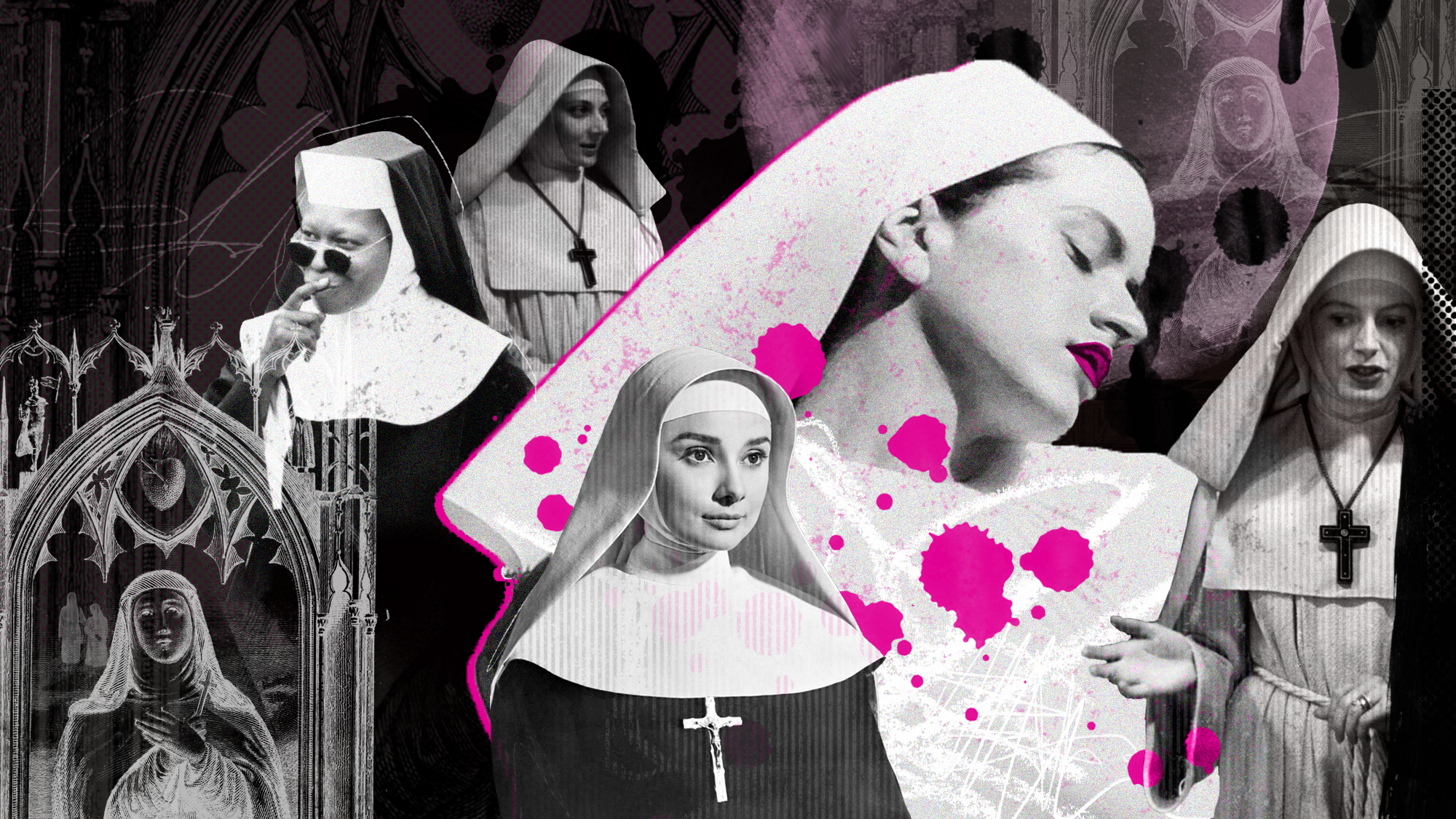Rosalía and the rise of nunmania
It may just be a ‘seasonal spike’ but Spain is ‘enthralled’ with all things nun

A free daily email with the biggest news stories of the day – and the best features from TheWeek.com
You are now subscribed
Your newsletter sign-up was successful
The Spanish prime minister and a Catalan bishop are both fans of avant-garde singer Rosalía’s new album “Lux”, “perhaps surprisingly for an artist who sings an ode to the Berlin techno club Berghain”, said The Times.
Featuring an image of the Catalan singer adorned with a white nun’s veil and a rosary, the album exudes “religiosity”, despite its sometimes explicit lyrics. It is also part of a wider trend across Spain: a “growing return to the Catholic faith”.
What’s more, the new release “has already made Spotify history”, said Rolling Stone. With more than 42 million streams in just one day, “Lux” broke the platform’s record for a female Spanish-language artist. The magazine’s review said the album “sounds like absolutely nothing else in music right now”.
The Week
Escape your echo chamber. Get the facts behind the news, plus analysis from multiple perspectives.

Sign up for The Week's Free Newsletters
From our morning news briefing to a weekly Good News Newsletter, get the best of The Week delivered directly to your inbox.
From our morning news briefing to a weekly Good News Newsletter, get the best of The Week delivered directly to your inbox.
‘Fusion of faith, flamenco, and rock opera’
Rosalía fans think she is “somewhat of a saint, worthy of candlelit ‘altars’”, said The Times, and “Lux” has quickly become a smash hit. A “fusion of faith, flamenco, and rock opera”, with lyrics from 14 languages, it has “cemented Rosalía’s place among innovators in contemporary pop music”. The album includes collaborations with the likes Björk, Yves Tumor and Escolanía de Montserrat – a choir “regarded as the region’s beacon of Catholic faith”.
Ahead of the album’s release, Rosalía put on a “show of promotional power”, said El País. “In her handling of fan anticipation and the industry’s promotional wheel”, she bears some artistic resemblance to Madonna, another star who “came of age musically and produced her first masterpiece when she abandoned ‘the material world’ and embraced spirituality”.
“Lux” “seems to be making everything related to nuns trendy… even the wimple”. Rosalía “is neither the first nor the only celebrity to seek answers to the modern world within the walls of the convent”. But the album does coincide with many other signs that nuns are “making a comeback”.
Spain ‘is having a nun moment’
In pop culture, nuns are typically relegated to “the sadistic school teacher” or an “evil spirit”. But more recently “Instagram has been filled with accounts of young (and not so young) religious women” from all sorts of religious backgrounds who are “using social media to vindicate the role of nuns in modern life”.
A free daily email with the biggest news stories of the day – and the best features from TheWeek.com
Spain is “having a nun moment”, said The Times, and Rosalía’s “aesthetic leap from motorbikes to mysticism” has only amplified the nunmania (or monjamania). A celebrated film about modern life in the convent and a “cult podcast devoted to 16th-century nuns” gaining popularity at the same time prove the point.
Sociologists have also identified a “parallel revival of the Catholic faith” among those under 35. Though the number of those attending “regular Sunday worship” has stayed relatively low, young people are participating more and more in “faith-based festivals and retreats”.
The craze may just be a “seasonal spike”, but for now Spain – “long caught between its Catholic heritage and a secular present” – seems to be “enthralled” by all things nun.
-
 ‘Poor time management isn’t just an inconvenience’
‘Poor time management isn’t just an inconvenience’Instant Opinion Opinion, comment and editorials of the day
-
 Bad Bunny’s Super Bowl: A win for unity
Bad Bunny’s Super Bowl: A win for unityFeature The global superstar's halftime show was a celebration for everyone to enjoy
-
 Book reviews: ‘Bonfire of the Murdochs’ and ‘The Typewriter and the Guillotine’
Book reviews: ‘Bonfire of the Murdochs’ and ‘The Typewriter and the Guillotine’Feature New insights into the Murdoch family’s turmoil and a renowned journalist’s time in pre-World War II Paris
-
 Bad Bunny’s Super Bowl: A win for unity
Bad Bunny’s Super Bowl: A win for unityFeature The global superstar's halftime show was a celebration for everyone to enjoy
-
 Microdramas are booming
Microdramas are boomingUnder the radar Scroll to watch a whole movie
-
 The 8 best superhero movies of all time
The 8 best superhero movies of all timethe week recommends A genre that now dominates studio filmmaking once struggled to get anyone to take it seriously
-
 Josh D’Amaro: the theme park guru taking over Disney
Josh D’Amaro: the theme park guru taking over DisneyIn the Spotlight D’Amaro has worked for the Mouse House for 27 years
-
 Music reviews: Ari Lennox, Lucinda Williams, and A$AP Rocky
Music reviews: Ari Lennox, Lucinda Williams, and A$AP RockyFeature ‘Vacancy,’ ‘World’s Gone Wrong,’ and ‘Don’t Be Dumb’
-
 Bad Bunny, Lamar, K-pop make Grammy history
Bad Bunny, Lamar, K-pop make Grammy historySpeed Read The Puerto Rican artist will perform at the Super Bowl this weekend
-
 The best fan fiction that went mainstream
The best fan fiction that went mainstreamThe Week Recommends Fan fiction websites are a treasure trove of future darlings of publishing
-
 Music reviews: Zach Bryan, Dry Cleaning, and Madison Beer
Music reviews: Zach Bryan, Dry Cleaning, and Madison BeerFeature “With Heaven on Top,” “Secret Love,” and “Locket”